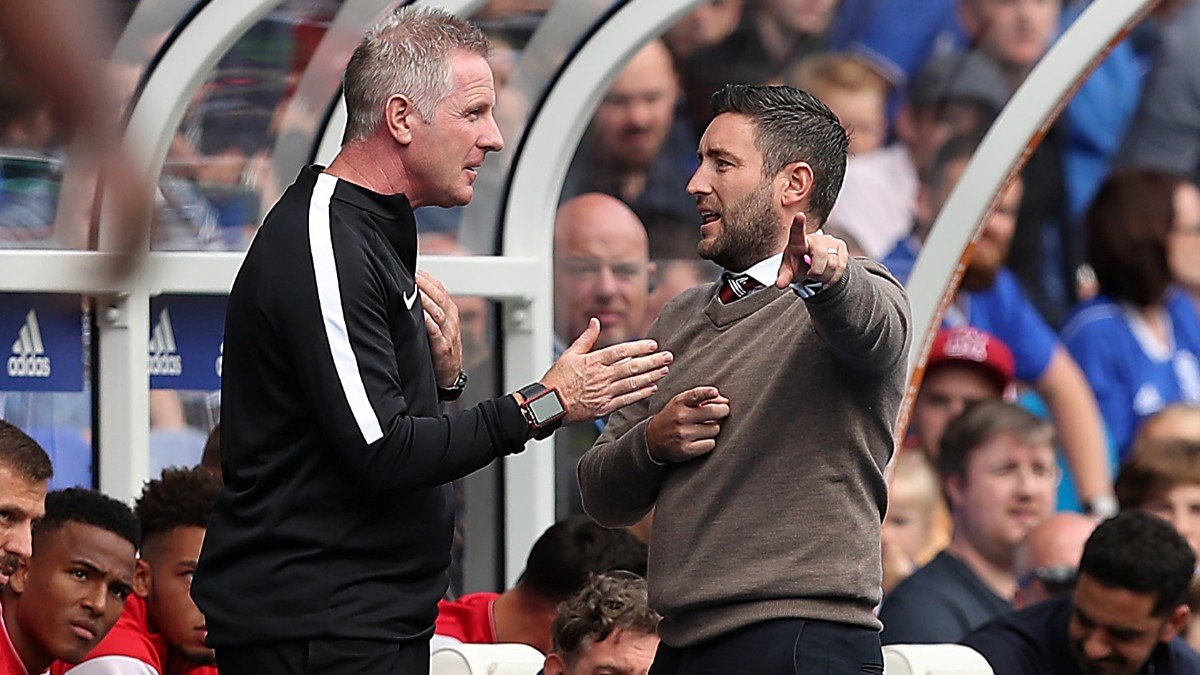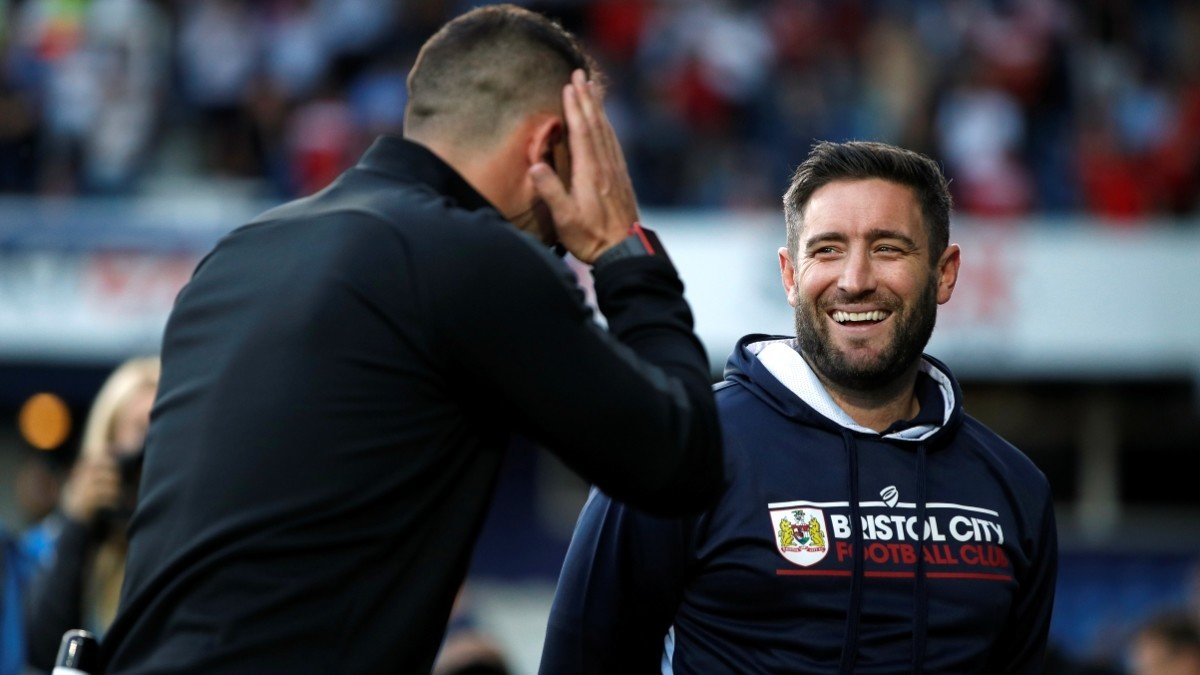‘Johnson’s Law’: How one English football manager is fighting back against fake injuries

Bristol City manager Lee Johnson might not be the most famous figure in English football, but his decision to impose a controversial new rule on his team this season could lead to less feigning of injuries in their matches.
His rule – which we’ve dubbed ‘Johnson’s Law’ – is that he has instructed his players to NOT kick the ball out of play when a player goes down injured.
It means that whenever a player goes down in a Bristol City game this season, Johnson’s players will continue to play on unless the referee himself decides that play should be stopped.
The rule flies in the face of the accepted footballing custom of kicking the ball out of play to allow injured players to get treatment.
But now, Johnson has instructed his side to specifically NOT follow the longstanding gentlemen’s agreement between teams.

Johnson’s City players can still kick the ball out of play when they see a player sustain a legitimate, serious head injury. But they have otherwise been told to just play to the whistle and let the referee be the sole arbiter of whether a game should be stopped due to an injury.
The City boss has made it official, too, by writing to every team in the Championship to clarify his position so there can be no confusion over why his players are refusing to stop play during matches.
Johnson’s Law did cause some touchline consternation during City’s season opener against Marcelo Bielsa’s Leeds United side on Sunday. But the City boss said he managed to explain himself to Bielsa during the half-time break. It also gave him the opportunity to make his decision much more public, as he explained his decision to the media.
“We sent an email out to the clubs because this happens often,” he told the local press in Bristol.
“Somebody goes down and sometimes it’s tactical because people try to gain an advantage, and sometimes it’s genuine.
“So we just decided as a club that we’re going to make a rule for the 46 games that we’re going to let the referee manage the game.

Johnson also said by not kicking the ball out of play it would help reduce any confusion, with the referee deciding on each occasion whether play should be stopped.
“Therefore if that’s our player injured or the opposition player injured, there’s a consistency there,” he explained.
“If the referee sees a head injury he will stop the game, but if it’s not a head injury he will play on.”
In the heat of the battle during games, Johnson’s City players may appear to be exhibiting a lack of sportsmanship.
But players feigning injuries has become not just a common occurrence in English football, it’s turned into an accepted tactic to take the steam out of games, with players from teams under pressure suddenly developing “injuries” to force the opposition to halt their momentum and kick the ball out.
But with the introduction of Johnson’s Law, City are drawing a line in the sand and making it clear they won’t let the cynical approach of their opponents stop them from playing on this season. And the hope is that if opposing teams know that feigning injury is less likely to work, they’ll be less likely to drop to the turf so readily.
That can only be a good thing, and things will surely only get better if other teams agree to adopt Johnson’s Law this season.
By Simon Head














